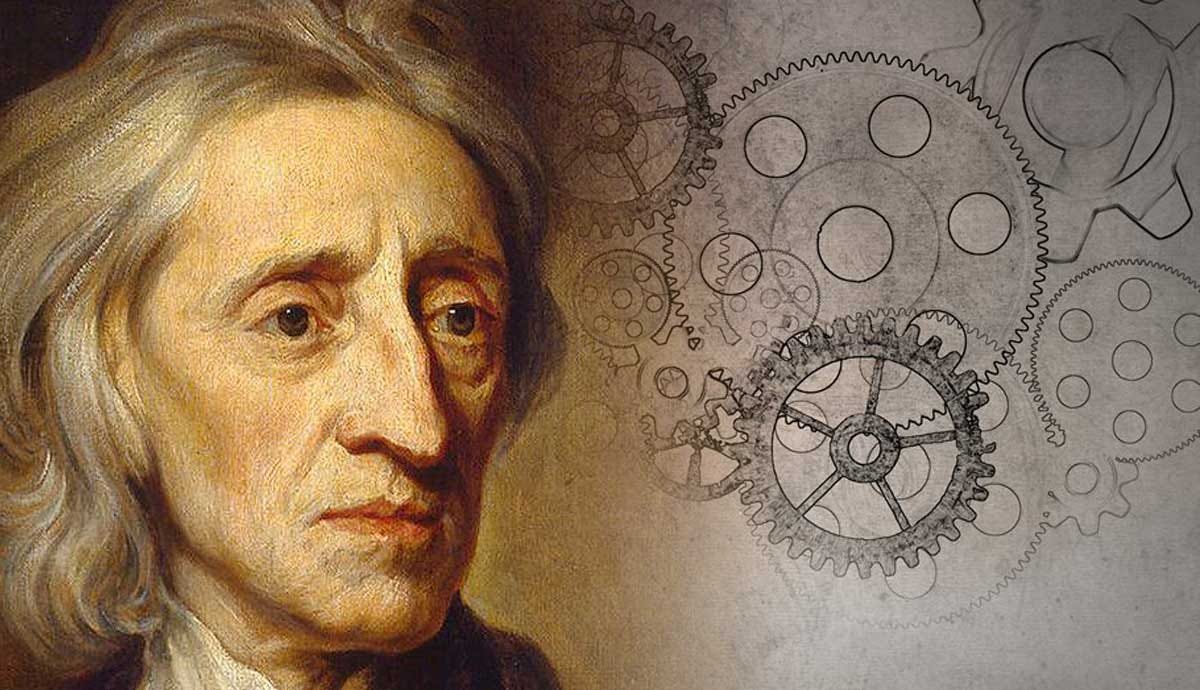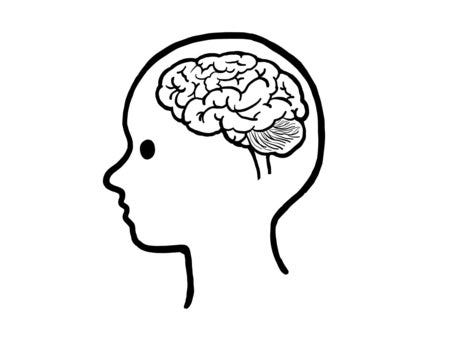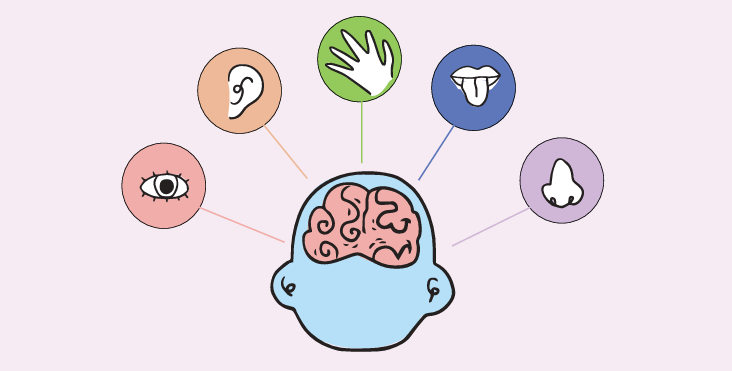A foundational work on empiricism and sensory experience as the source of knowledge

John Locke (1632–1704) was a British philosopher best known for his political writings and his role in shaping empiricism. Along with George Berkeley and David Hume, Locke is considered one of the three great empiricists. Empiricism, loosely defined, is the theory that all knowledge arises from sense experience. It stands in contrast to rationalism, the view that reason alone is the primary source of knowledge. The debate between empiricism and rationalism — particularly in the seventeenth and eighteenth centuries — shaped much of modern philosophy and set the stage for later developments in epistemology and political thought.
In addition to his contributions to law and political theory, Locke is central to this tradition of empiricism. In his landmark work An Essay Concerning Human Understanding (1689), Locke rejects the idea of innate ideas or principles. Instead, he argues that all knowledge is acquired through impressions upon the senses. One important detail is that, in the Epistle to the Reader, Locke explains that the Essay grew out of conversations with friends rather than formal academic writing. At any rate, this blog post will review Book I, Chapter I of An Essay Concerning Human Understanding, the foundation of Locke’s empiricist project. Locke was meticulous enough to number each section, though he did not provide titles. For clarity, I have added my own headings that capture the main idea of each passage.
Locke begins forcefully, challenging the assumption of innate principles and setting the stage for a philosophy grounded entirely in experience.

Step-by-Step
1. Knowledge Does Not Depend on Innate Ideas
It would be sufficient to convince unprejudiced readers of the falseness of this supposition, if I should only show … how men, barely by the use of their natural faculties, may attain to all the knowledge they have, without the help of any innate impressions…
Locke begins by noting that some philosophers claim humans are born with innate principles stamped on the mind. He argues that all knowledge can be explained through impressions upon the body and mind — sight, hearing, touch, and so on — without necessitating innate ideas. To illustrate this, Locke posits an example dealing with colors: it would be erroneous to conclude that the idea of color is innate in a creature that has eyes to perceive color. Likewise, it makes little sense to assume that simply because humans have the capacity to grasp certain principles, those principles must therefore be innate.
2. The “General Assent” Argument
There is nothing more commonly taken for granted than that there are certain principles, both speculative and practical … universally agreed upon by all mankind: which therefore, they argue, must needs be the constant impressions which the souls of men receive in their first beings, and which they bring into the world with them…
Defenders of innate ideas argue that there are certain principles “universally agreed upon,” which they take as evidence of a priori truths. These are divided into two kinds: speculative truths, such as the maxim “what is, is,” and practical truths, which function as moral rules. Because these principles are said to receive universal assent, the conclusion is that they must be present from birth. At this stage, Locke does not respond to the argument but simply explains it.
3. Answering the “General Assent” Argument
This argument, drawn from universal consent, has this misfortune in it, that if it were true in matter of fact, that there were certain truths wherein all mankind agreed, it would not prove them innate, if there can be any other way shown how men may come to that universal agreement.
Locke responds to the general assent argument by noting that universal agreement on a principle does not prove it to be innate. Even if all people consent to a truth, this does not make it a priori. If it can be shown that humans arrive at such truths through the use of their natural faculties, then the appeal to innateness is unnecessary.
4. Universal Assent Does Not Exist
… These propositions are so far from having an universal assent, that there are a great part of mankind to whom they are not so much as known.
Whereas the previous section argued that ‘even if’ universal assent were true it would not prove innateness, this section argues that universal assent is not true in the first place. Defenders of the general assent argument point to speculative maxims such as “What is, is” and “It is impossible for the same thing to be and not to be” as supposedly universal. But Locke counters that many people — especially children or those without philosophical training — do not even understand these maxims, let alone assent to them.
5. Continuing Universal Assent Does Not Exist
To say a notion is imprinted on the mind, and yet at the same time to say, that the mind is ignorant of it, and never yet took notice of it, is to make this impression nothing.
Once again, defenders of the universal assent argument claim that certain principles are “imprinted on the mind.” But Locke replies that this claim fails the moment we notice that not everyone assents to such principles. Children and those with limited reasoning ability (in his words, “idiots”) lack awareness of these supposed universal truths. From this, Locke concludes that no principles can be naturally imprinted on the mind. To redefine innateness as merely the capacity to know truths would render the term meaningless, since by that logic every truth the mind ever discovers would count as innate.

6. Response to Locke: Delayed Recognition
To avoid this, it is usually answered, that all men know and assent to them, when they come to the use of reason; and this is enough to prove them innate…
Locke anticipates how defenders of the general assent argument might reply to his criticisms. They concede that children and those with limited capacity may not recognize innate truths at first, but argue that everyone does so once they come to the use of reason. On this view, delayed recognition still counts as evidence that the a priori truths are present in the mind from birth.
7. Locke’s Clarification of Delayed Recognition
… To apply this answer with any tolerable sense … it must signify one of these two things: either that as soon as men come to the use of reason these supposed native inscriptions come to be known and observed by them; or else, that the use and exercise of men’s reason assists them in the discovery of these principles.
According to Locke, the delayed recognition argument is ambiguous. For it to make sense, it must mean one of two things: either that innate principles are automatically recognized as soon as an individual comes to the use of reason, or that the exercise of reason gradually enables individuals to discover these truths. In the next section, Locke begins to critique both interpretations.
8. Locke’s First Criticism of Delayed Recognition
… Whatever truths reason can certainly discover to us, and make us firmly assent to, those are all naturally imprinted on the mind … and, by this means, there will be no difference between the maxims of the mathematicians and theorems they deduce from them: all must be equally allowed innate.
In this section, Locke critiques the second interpretation of the delayed recognition argument. On this view, defenders of universal assent claim that the exercise of reason gradually enables individuals to discover innate truths. But Locke argues that if this were the case, then all truths discoverable by reason would have to count as innate. Not only would basic axioms like “What is, is” qualify, but so would every mathematical theorem or proof. The entire notion of innateness would collapse if whatever can be discovered through reason were automatically considered innate.
9. Locke’s Second Criticism of Delayed Recognition
…To make reason discover those truths thus imprinted, is to say, that the use of reason discovers to a man what he knew before: and if men have those innate impressed truths … and yet are always ignorant of them till they come to the use of reason, it is in effect to say, that men know and know them not at the same time.
Locke argues that reason is the faculty for discovering unknown truths from principles already known. If there were innate principles that were not immediately recognized, reason would supposedly be needed to uncover them. But this makes no sense: it would imply that reason is required to discover what the mind already knows. Locke calls this contradictory, since it would mean that people both know and do not know innate truths at the same time. He illustrates the point with an analogy: do our eyes need reasoning in order to see, or do they see by their very nature? Likewise, if innate truths truly existed, they would be imprinted directly on the mind and would not require reasoning to discover.
10. Reason Plays No Role in the Discovery of Maxims
… As soon as understood, [these maxims] are, without any the least reasoning, embraced and assented to. But I withal beg leave to observe, that it lays open the weakness of this subterfuge … since it must be confessed that in their discovery there is no use made of reasoning at all.
Defenders of innate ideas argue that certain principles differ from mathematical truths because they can be assented to immediately, without proof. For instance, the maxim “It is impossible for the same thing to be and not to be” is said to require no demonstration. Locke grants that mathematical theorems do depend on reasoning, whereas maxims are accepted as soon as they are understood. But, he insists, this actually supports his own case: if such maxims are grasped instantly, then reason plays no role in their discovery. And if reason is not involved, defenders of general assent cannot claim that reason is what reveals these truths in the mind.

11. Further “Use of Reason” Remarks by Locke
Reason, therefore, having nothing to do in procuring our assent to these maxims, if by saying, that ‘men know and assent to them, when they come to the use of reason,’ be meant, that the use of reason assists us in the knowledge of these maxims, it is utterly false; and were it true, would prove them not to be innate.
Locke promises to show later that our immediate assent to maxims comes not from innate inscription but from another faculty of the mind. For him, reason plays no role in our acceptance of these truths. And even if reason were involved, this would still undermine the innateness claim, since anything that depends on reasoning cannot be naturally imprinted on the mind.
12. Timing of Reason
… It is evident these maxims are not in the mind so early as the use of reason; and therefore the coming to the use of reason is falsely assigned as the time of their discovery. How many instances of the use of reason may we observe in children, a long time before they have any knowledge of this maxim, ‘That it is impossible for the same thing to be and not to be’?
Defenders continue to argue that innate ideas are uncovered as soon as one comes to the use of reason. Locke finds this claim arbitrary: children exercise reason without ever stating abstract principles such as, “It is impossible for the same thing to be and not to be.” The same is true of rational adults who live their entire lives without contemplating such maxims. Locke concedes that reason is necessary to form abstract principles, but insists this does not make principles innate. They are instead ordinary discoveries, acquired in the same way as other truths.
13. Reason Does Not Prove Innate Ideas
… They are never known nor taken notice of before the use of reason, but may possibly be assented to some time after, during a man’s life … and so may all other knowable truths … which therefore have no advantage nor distinction from others by this note of being known when we come to the use of reason.
When defenders of general assent argue that individuals become aware of maxims once they “come to the use of reason,” all they are really saying is that these truths were not known before reason but are known afterward. Yet this is true of all knowable truths, not just the supposed innate ones. The claim therefore fails to distinguish innate principles from ordinary discoveries we eventually make.
14. Still Cannot Prove Innateness
… Were it true that the precise time of their being known and assented to were, when men come to the use of reason; neither would that prove them innate. This way of arguing is as frivolous as the supposition itself is false.
For the sake of argument, Locke concedes that individuals might discover these maxims at the very moment they acquire the ability to reason. Even so, this would not prove them innate. The mere fact that a truth is discovered when a faculty begins to operate does not mean it was imprinted from birth. Locke illustrates this with an analogy: if we claimed that maxims are innate because people first recognize them when they learn to speak, that would be no better proof of innateness. In reality, children come to abstract principles only after their reasoning has been exercised on more particular ideas and they have learned the names to express them.
15. The Mind Is an Empty Cabinet
The senses at first let in particular ideas, and furnish the yet empty cabinet … afterwards, the mind proceeding further, abstracts them, and by degrees learns the use of general names. In this manner the mind comes to be furnished with ideas and language, the materials about which to exercise its discursive faculty.
Here Locke transitions to a positive account of how the mind works, introducing his famous notion of the tabula rasa — the mind as a blank slate. He explains the stages by which ideas enter and develop. First, the senses “let in” particular ideas such as colors, sounds, and tastes. These ideas become familiar, stored in memory, and associated with names. From there, the mind abstracts from particulars to form general ideas. As the amount of ideas grow, the reasoning faculty has more material to work with. Locke illustrates this with the example of a child tasting something bitter and then something sweet. Even without words or abstract reasoning, the child immediately perceives the difference. Only later does the child learn the names for these tastes and use reason to distinguish them more fully. This process shows that knowledge begins with experience, not with innate principles — it is empirical, not a priori.
16. How the Empty Cabinet Assents
… The truth of it appears to him as soon as he has settled in his mind the clear and distinct ideas that these names stand for … whose terms, with the ideas they stand for, being no more innate than those of a cat or a weasel, he must stay till time and observation have acquainted him with them.
When discussing universal assent, Locke is not denying that three and four equal seven. Rather, he shows that a child cannot know this until they are able to count and grasp the concept of equality. These ideas must first be acquired before the mathematical proposition can make sense. Assent follows only once the child has distinct ideas to work with. This pattern extends beyond mathematics. For example, to understand the maxim “it is impossible for the same thing to be and not to be,” a child must already have the abstract idea of identity and the words to express it. Without those prior steps, assent to the maxim is impossible.

17. Immediate Assent pt. I
… Seeing all men, even children, as soon as they hear and understand the terms, assent to these propositions, they think it is sufficient to prove them innate. For since men never fail after they have once understood the words, to acknowledge them for undoubted truths, they would infer, that certainly these propositions were first lodged in the understanding…
Defenders of the general assent argument claim that, even if maxims are not recognized at birth, they are assented to immediately once people understand them. Because such maxims are universally accepted, defenders argue that these propositions must have been present in the mind from the very beginning, waiting to be recognized. Locke begins his critique here by noting that this does not prove innateness at all. What it shows instead is the clarity of the ideas involved: once the terms are understood, assent naturally follows.
18. Immediate Assent pt. II
… Upon the same ground, viz. of assent at first hearing and understanding the terms … one and two are equal to three, … white is not black, … bitterness is not sweetness … must have a place amongst these innate axioms. … Universal and ready assent upon hearing and understanding the terms is, I grant, a mark of self-evidence; but self-evidence … belongs to several propositions which nobody was yet so extravagant as to pretend to be innate.
Building on the previous section, Locke continues to dismantle the claim that immediate assent proves innateness. If that were true, then countless ordinary truths would also have to be innate — such as one and two are three, sweetness is not bitterness, or white is not black. For Locke, immediate assent simply indicates self-evidence, which depends on the clarity of ideas, not on innate inscription. To accept the defenders’ logic would mean treating all ideas as innate, a view he considers contrary to both reason and experience.
19. No Foundational Truth
… These, and the like less general propositions, are certainly known, and firmly assented to by those who are utterly ignorant of those more general maxims; and so, being earlier in the mind than those (as they are called) first principles, cannot owe to them the assent wherewith they are received at first hearing.
In this section, Locke argues that the so-called innate truths appealed to by defenders of immediate assent are actually secondary and arrive later in the mind. Some defenders claim that simple propositions — such as ‘one and two make three’ or ‘green is not red’ — depend on more general maxims like “it is impossible for the same thing to be and not to be.” On this view, certain maxims serve as foundations for all other truths. Locke rejects this, noting that people can readily understand simple truths without any knowledge of the supposed foundational ones. In fact, children grasp these particular propositions before they are capable of understanding or articulating abstract maxims.
20. Erroneous Distinction Between Maxims
… Whatever proposition can be found that receives general assent as soon as heard and understood, that must be admitted for an innate proposition, as well as this maxim, “That it is impossible for the same thing to be and not to be” … And as to the difference of being more general, that makes this maxim more remote from being innate.
Some defenders of innateness respond that Locke is being unfair when he treats simple truths like ‘one plus one equals two’ or ‘red is not green’ as if they were equal to the so-called foundational maxims. These simple truths, they argue, are not as important or general as propositions such as “it is impossible for the same thing to be and not to be.” Locke replies that if immediate assent is really the sign of innateness, then defenders cannot selectively privilege some maxims while excluding others — they must all count as innate. In fact, he suggests the opposite of their claim: the more abstract and general maxims actually come later to the mind, which would make them derivative of the simpler self-evident propositions rather than their foundation.
21. Immediate Assent Proves the Opposite of Innateness
… If they were innate, what need they be proposed in order to gaining assent, when, by being in the understanding, by a natural and original impression … they could not but be known before? Or doth the proposing them print them clearer in the mind than nature did?
Locke replies that if certain ideas were truly innate, the ideas would not need to be proposed by others in order to be known. The very fact that someone must first hear a maxim before assenting to it shows that the maxim is learned, not imprinted from birth. If teaching or proposing a truth enables someone to grasp it, this is simply learning, not uncovering an innate principle. All that happens is the clarification of an idea that reason cannot deny once it is considered. If we accepted this as a proof of innateness, then every generalization drawn from experience — such as seeing the sun rise every day — would also have to be innate.
22. Implicit Knowledge
… What is meant by a principle imprinted on the understanding implicitly, unless it be this, — that the mind is capable of understanding and assenting firmly to such propositions. And thus all mathematical demonstrations, as well as first principles, must be received as native impressions on the mind…
Defenders argue once again that maxims must be innate because they exist implicitly in the mind, even if we do not recognize them until they are proposed. Locke presses on the ambiguity: what does “implicit knowledge” actually mean? Either it means nothing at all, or it simply means that the mind has the capacity to grasp these truths. But if capacity counts as innateness, then everything we are capable of learning — including the entire body of mathematics — would have to be innate. Locke highlights the absurdity of this view: if it were true, then every mathematical proof would already be inscribed on the mind. Yet mathematicians do not stumble upon solutions effortlessly — they discover them through labor, testing, and demonstration.

23. The Assumption That Assent Requires No Prior Learning
… In all propositions that are assented to at first hearing, the terms of the proposition, their standing for such ideas, and the ideas themselves that they stand for, being neither of them innate, I would fain know what there is remaining in such propositions that is innate.
Defenders of general assent argue that assent occurs immediately upon first hearing a truth — if one understands the words, the proposition is accepted. Locke replies that this overlooks the prior learning already involved. To recognize a proposition, one must already have acquired words, ideas, and their meanings through experience. None of these are innate. For example, a child assents to the claim “an apple is not fire” only after first learning what an apple is and what fire is. The assent follows prior experience and learning, not innate inscription.
24. Not Everyone Assents
… If they are innate, they must needs have universal assent. For that a truth should be innate and yet not assented to, is to me as unintelligible as for a man to know a truth and be ignorant of it at the same time.
This section may feel repetitive, but Locke is reasserting his claim. He accepts the standard set by defenders of innate principles: if a truth is innate, it must be universally assented to. But this very standard undermines their position. Many people do not assent to these supposed maxims — children, the uneducated, and even adults who have never heard or thought of them. If even a small number of people fail to assent, universality collapses. The absence of universal assent entails that these ‘truths’ cannot be innate.
25. An Infant’s Experience pt. I
… Those are very ill supposed the clearest parts of truth, and the foundations of all our knowledge, which are not first known, and without which the undoubted knowledge of several other things may be had.
At this point, Locke considers an objection: perhaps infants really do possess innate ideas, but we cannot access their way of thinking, so empiricists mistakenly assume they do not. Locke replies that we can observe when children begin to think and what they recognize first. Their earliest judgments are experiential truths — such as that the nurse who feeds them is not the cat they play with. These conclusions are drawn from sensory experience, not from abstract maxims. If innate principles were truly imprinted on the mind, they would appear before or alongside these ordinary judgments. Instead, children clearly know many experiential truths long before they can grasp abstract principles like “it is impossible for the same thing to be and not to be.”
26. An Infant’s Experience pt. II
… If there be any innate truths, they must necessarily be the first of any thought on; the first that appear.
Locke begins to close his argument by conceding that adults may indeed assent to certain maxims as soon as they understand the terms. Yet, he reminds us, these same truths are absent in children, who nevertheless know many other experiential truths. This undermines any claim to innateness. For Locke, it is impossible to call a truth innate if it only appears after a certain period of time, once abstract reasoning has developed. Innate truths, if they existed, would have to be the first truths the mind encounters.
27. If “General Assent” is True, Children Should Know
… These characters, if they were native and original impressions, should appear fairest and clearest in those persons in whom yet we find no footsteps of them; … but alas, amongst children, idiots, savages, and the grossly illiterate, what general maxims are to be found?
- Note: Locke uses terms that reflect his historical moment. It is worth problematizing this language while focusing on his argument.
Locke argues that if ideas were truly innate, they should be present in all people. In fact, they should appear most clearly in those least shaped by formal education or cultural conventions, since nothing would have obscured nature’s supposed imprint. Yet the opposite is true: children and those without access to formal learning recognize only simple, experiential truths drawn from daily life. They rarely, if ever, grasp abstract philosophical maxims such as “it is impossible for the same thing to be and not to be.” These maxims tend instead to arise in academic settings, where they serve as tools of argument rather than as universal truths written into every human mind.
28. Concluding Remarks
Upon the whole matter, I cannot see any ground to think these two speculative Maxims innate: since they are not universally assented to; … and if these ‘first principles’ of knowledge and science are found not to be innate, no other speculative maxims can … pretend to be so.
Locke acknowledges that his argument may sound strange to many readers. Still, he emphasizes that he welcomes criticism and urges the reader to withhold judgment until they have considered his full case. He concludes by reiterating his central point: the supposed foundational principles, such as “what is, is,” are not innate. And if even these maxims cannot be proven innate, then nothing that follows them can rightly claim to be innate either.

Conclusion
In this chapter, Locke sets out to dismantle the rationalist claim that speculative principles are innate. For him, the mind is tabula rasa — a blank slate that acquires ideas only through experience and sense perception. Knowledge is not written into us from birth but built step by step through reflection on what we encounter in the world. Locke’s empiricism here lays the foundation for one of philosophy’s great debates: rationalism versus empiricism.
Leave a Reply